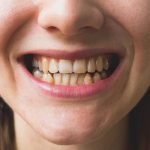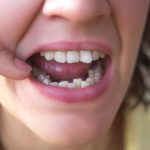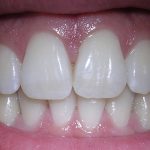Natural Ways to Strengthen Teeth and Gums: Expert Tips for Optimal Oral Health
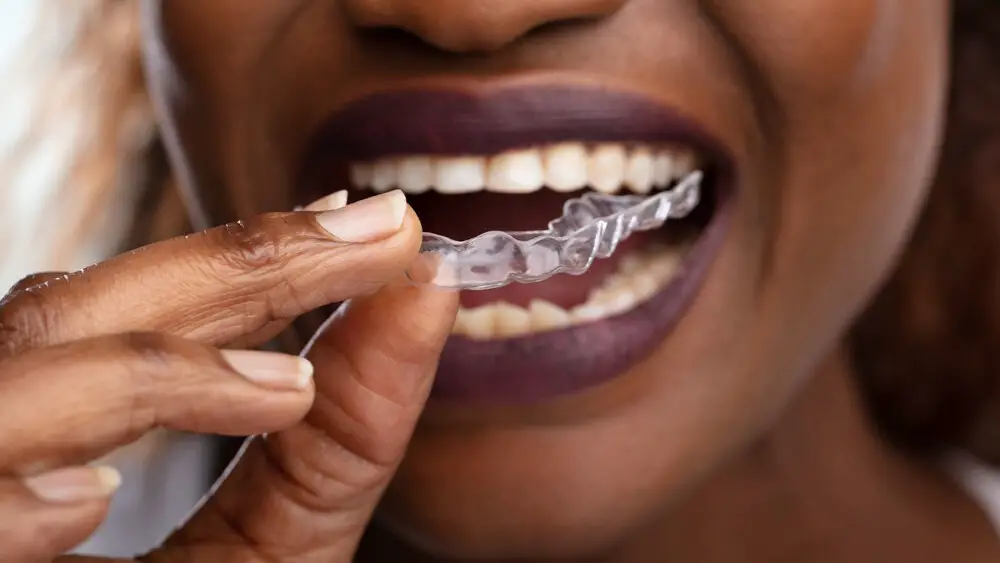
A healthy set of teeth and gums is not only important for a beautiful smile but also essential for overall well-being. While brushing and flossing are the most common ways to maintain oral hygiene, there are several natural and effective ways to strengthen teeth and gums. These natural methods not only help prevent tooth decay, gum disease, and bad breath but also promote optimal oral health. From consuming certain foods to adopting specific oral care practices, natural ways to strengthen teeth and gums offer a holistic approach to oral health. Instead of relying on chemical-based products, these natural methods use the power of nature to improve your dental health. In this article, we will explore expert tips and advice on how to enhance your oral hygiene using natural and safe ways, ensuring that you have a healthy and beautiful smile for years to come.
Oral health is crucial for overall well-being. Healthy teeth and gums not only allow us to eat and speak properly, but they also play a significant role in our appearance and self-esteem. Neglecting oral health can lead to a variety of issues, including cavities, gum disease, and even tooth loss. In addition, poor oral health has been linked to other health problems such as heart disease, diabetes, and respiratory infections. It is, therefore, essential to maintain good oral hygiene practices, such as brushing and flossing regularly, visiting the dentist for regular check-ups and cleanings, and avoiding sugary and acidic foods and drinks. By taking care of our teeth and gums, we can prevent these issues and promote a healthy, confident smile.
The article \Natural Ways to Strengthen Teeth and Gums Expert Tips for Optimal Oral Health\ focuses on the importance of maintaining good oral health by adopting natural ways to strengthen teeth and gums. The author emphasizes the significance of natural remedies and practices, such as oil pulling, fluoride-free toothpaste, and a balanced diet that includes vitamins and minerals essential for healthy teeth and gums. The article also provides expert tips on how to prevent tooth decay and gum disease, including regular dental checkups and the use of natural mouthwash. By following these natural and simple steps, individuals can maintain strong and healthy teeth and gums, and ultimately, improve their overall oral health.
Proper Oral Hygiene
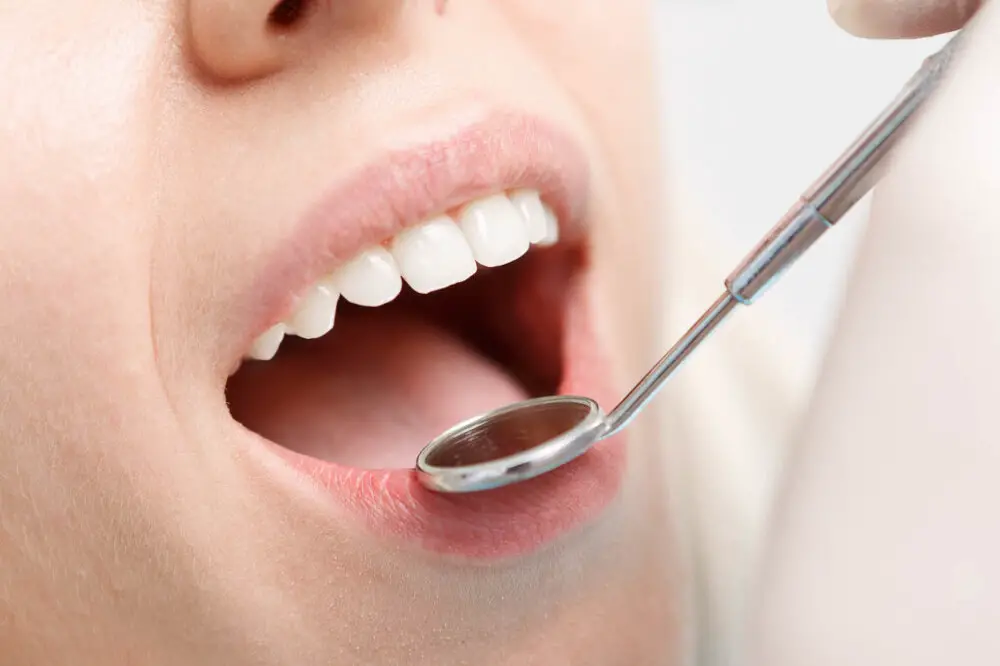
Proper oral hygiene is essential for maintaining healthy teeth and gums. It involves regular brushing, flossing, and rinsing to remove plaque and bacteria from the mouth. Brushing should be done at least twice a day using a soft-bristled toothbrush and fluoride toothpaste. It is essential to brush all surfaces of the teeth, including the front, back, and chewing surfaces. Flossing should also be done at least once a day to remove food particles and plaque from between the teeth. Rinsing with an antiseptic mouthwash can also help kill bacteria and freshen breath. In addition to daily oral hygiene practices, it is also essential to maintain a healthy diet. Foods high in sugar and carbohydrates can contribute to the formation of plaque and tooth decay. Eating a diet rich in fruits, vegetables, and lean protein can help strengthen teeth and gums. Drinking plenty of water can also help flush out harmful bacteria and keep the mouth hydrated. By following these tips, you can maintain optimal oral health and prevent common dental problems such as cavities, gum disease, and bad breath.
Maintaining good oral hygiene is essential for healthy teeth and gums. Proper brushing and flossing techniques are crucial for maintaining optimal oral health. Brushing your teeth twice a day with a fluoride toothpaste and a soft-bristled toothbrush is recommended. Make sure to brush all surfaces of your teeth, including the front, back, and chewing surfaces. Use circular motions and gentle pressure to avoid damaging your teeth and gums. Flossing once a day is also essential for removing plaque and food particles between your teeth. Use a clean section of floss for each tooth and gently slide it between your teeth, making sure to reach the gum line. By following these techniques, you can maintain optimal oral health and prevent tooth decay and gum disease.
Regular dental checkups and cleanings are crucial for maintaining optimal oral health. These appointments allow dentists to detect and treat any potential issues before they become more serious problems. Additionally, professional cleanings remove plaque and tartar buildup, which can lead to tooth decay and gum disease if left untreated. Even those who maintain good oral hygiene habits at home can benefit from regular checkups as dentists can identify areas that may require extra attention. By prioritizing regular dental appointments, individuals can prevent more costly and painful dental procedures down the line and ensure that their teeth and gums remain healthy for years to come.
If you’re looking for natural toothpaste and mouthwash options, there are several great choices available. Some popular natural toothpaste brands include Tom’s of Maine, Dr. Bronner’s, and Jason. These brands offer a range of options, from fluoride-free toothpaste to vegan options. For mouthwash, you might consider trying a product like TheraBreath, which uses natural ingredients like green tea and aloe vera to freshen breath and fight bacteria. Another option is oil pulling with coconut oil, which has been shown to reduce plaque and improve oral health. Whatever your preference, there are plenty of natural options to help you maintain strong, healthy teeth and gums.
Diet and Nutrition
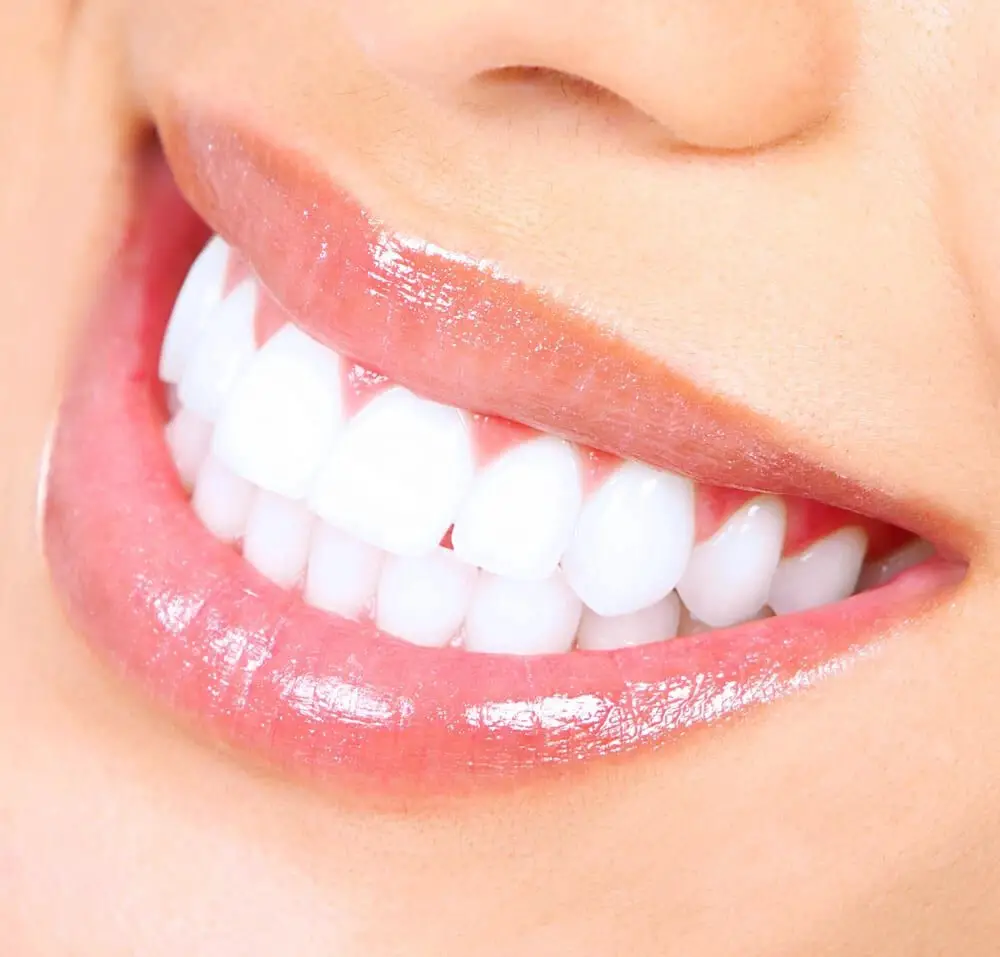
Maintaining a healthy diet and nutrition is crucial for optimal oral health. The food we eat plays a significant role in the health of our teeth and gums. A diet that is high in sugary and acidic foods can lead to tooth decay and gum disease. Therefore, it is important to consume a well-balanced diet that includes a variety of nutrient-dense foods such as fruits, vegetables, whole grains, lean protein, and low-fat dairy. These foods contain essential vitamins and minerals such as calcium, vitamin D, and phosphorus that are vital for strong teeth and healthy gums. Moreover, drinking plenty of water is also essential for maintaining good oral health. It helps to wash away food particles and bacteria that can cause tooth decay and bad breath. Apart from consuming a healthy diet, it is also essential to maintain good oral hygiene practices such as brushing and flossing regularly. Brushing at least twice a day and flossing at least once a day can help to remove plaque and prevent gum disease. Additionally, using mouthwash can help to kill bacteria and freshen breath. Overall, a combination of good oral hygiene practices and a healthy diet can help to strengthen teeth and gums, prevent tooth decay, and promote overall oral health. Therefore, it is important to make healthy eating choices and prioritize oral hygiene to maintain a healthy and beautiful smile.
Maintaining good oral hygiene is essential for overall health. Eating a balanced and nutritious diet is one of the best ways to promote oral health and strengthen teeth and gums. Foods that are high in calcium, such as cheese, yogurt, and milk, can help strengthen teeth and prevent tooth decay. Leafy greens like spinach and kale are also great for oral health as they are high in vitamins and minerals. Foods that are high in vitamin C, such as citrus fruits, strawberries, and kiwis, can help strengthen gums and prevent gum disease. Additionally, drinking water and unsweetened tea can help wash away food particles and bacteria in the mouth, keeping teeth and gums healthy. Avoiding sugary foods and drinks is also important, as sugar can lead to tooth decay and other oral health problems.
Maintaining optimal oral health requires more than just brushing and flossing regularly. What you eat and drink also plays a significant role in the health of your teeth and gums. To prevent tooth decay and gum disease, it is important to avoid or limit foods and beverages that are high in sugar, acid, and carbohydrates. Sugary drinks, such as soda and sports drinks, can erode tooth enamel and lead to cavities. Acidic foods, such as citrus fruits and vinegar, can also wear away at enamel and cause tooth sensitivity. Carbohydrates, such as bread and pasta, can contribute to the growth of harmful bacteria in the mouth, leading to plaque buildup and gum disease. By limiting these foods and beverages and focusing on a well-balanced diet rich in fruits, vegetables, lean proteins, and dairy products, you can help strengthen your teeth and gums and maintain optimal oral health.
Supplements can be a great addition to your oral health routine. Vitamin D and calcium are essential for building strong teeth and bones, and can be found in dairy products, leafy greens, and supplements. Probiotics can also help support a healthy balance of bacteria in the mouth, reducing the risk of gum disease and bad breath. Omega-3 fatty acids can have anti-inflammatory effects, which can help reduce inflammation in the gums. Green tea extract is another supplement that has been shown to have anti-inflammatory and antibacterial properties, making it a good choice for promoting oral health. It’s important to talk to your healthcare provider before starting any new supplement regimen.
Home Remedies
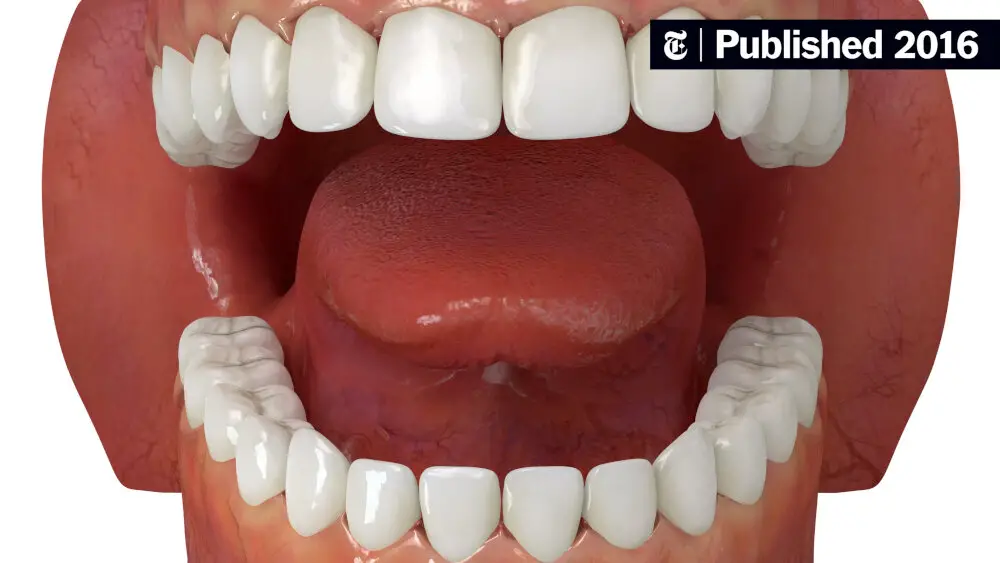
Home remedies have been used for centuries to treat various health conditions, including oral health issues. These remedies are often made from natural ingredients that are readily available in most households. When it comes to strengthening teeth and gums, home remedies can be an effective and affordable option. For instance, oil pulling is a traditional Indian practice that involves swishing oil in the mouth to improve oral health. Coconut oil is a popular choice for oil pulling, as it contains lauric acid, which has antimicrobial properties. This practice is believed to reduce plaque buildup, prevent tooth decay, and freshen breath. Another home remedy for strengthening teeth and gums is the use of baking soda. Baking soda is a mild abrasive that can help remove surface stains on teeth and neutralize the acids produced by oral bacteria. It can also be used to create a homemade toothpaste by mixing it with water or coconut oil. Additionally, saltwater rinses are another simple and effective home remedy for oral health. Saltwater can help reduce inflammation and kill harmful bacteria in the mouth. These are just a few examples of the many home remedies that can be used to improve oral health and strengthen teeth and gums. It’s important to note, however, that home remedies should not replace regular dental checkups and professional cleanings.
Natural remedies can be a great alternative to alleviate common dental issues like toothaches and gum inflammation. Clove oil has been used for centuries for its analgesic and anti-inflammatory properties to relieve toothaches. Aloe vera gel can be applied topically to soothe gum inflammation and promote healing due to its antibacterial and anti-inflammatory properties. Saltwater rinse is another simple and effective remedy to reduce gum inflammation and fight bacteria in the mouth. Turmeric, with its natural anti-inflammatory and antibacterial compounds, can also be used as a paste to help reduce gum inflammation and toothache pain. Incorporating these natural remedies into your dental routine can provide a natural and effective way to maintain optimal oral health.
Herbs and essential oils can provide excellent natural remedies for maintaining optimal oral health. Some of the recommended herbs for oral health include peppermint, clove, and sage. Peppermint oil has antibacterial properties that can help fight off harmful bacteria in the mouth, while clove oil has analgesic properties that can help alleviate tooth pain. Sage, on the other hand, has anti-inflammatory properties that can reduce gum inflammation and promote healing. Essential oils such as tea tree oil and eucalyptus oil can also be used to improve oral health by reducing inflammation and fighting off harmful bacteria. It is important to note that while these natural remedies can be beneficial, they should not replace regular dental checkups and proper oral hygiene practices.
If you’re looking for a more natural approach to your oral hygiene routine, making your own mouthwash and toothpaste can be a great option. For a simple mouthwash recipe, try mixing equal parts of water and apple cider vinegar, then adding a few drops of peppermint essential oil for a refreshing flavor. To make your own toothpaste, mix baking soda and coconut oil until you reach a paste-like consistency, then add a few drops of a natural flavoring oil, such as cinnamon or peppermint. These DIY recipes can help promote healthier teeth and gums without the use of harsh chemicals or additives found in store-bought products.
Lifestyle Habits
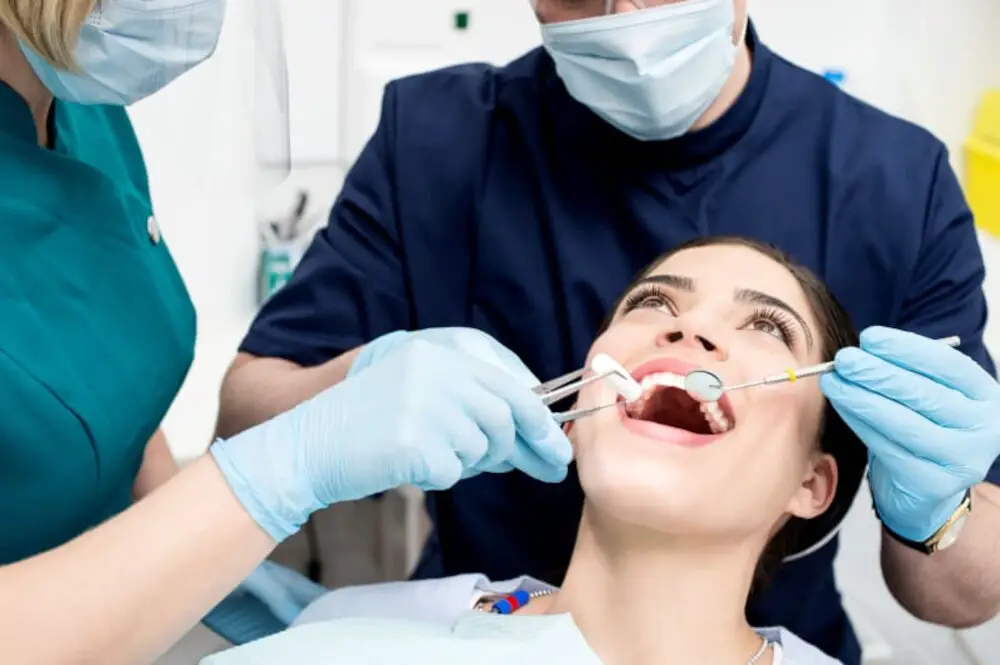
Lifestyle habits play a crucial role in maintaining optimal oral health. Poor lifestyle choices such as smoking, excessive alcohol consumption, and a diet high in sugar and processed foods can have a detrimental effect on teeth and gums. Smoking, in particular, is one of the leading causes of gum disease, a condition that can cause tooth loss and other serious health problems. Excessive alcohol consumption can also damage teeth and gums, leading to decay and infection. A diet high in sugar and processed foods can cause plaque buildup and increase the risk of cavities. It is important to make healthy lifestyle choices to maintain optimal oral health, including quitting smoking, limiting alcohol consumption, and eating a diet rich in fruits, vegetables, and whole grains. In addition to making healthy lifestyle choices, there are other lifestyle habits that can help strengthen teeth and gums. Regular brushing and flossing are essential for maintaining good oral health. Brushing twice a day with fluoride toothpaste can help remove plaque and prevent cavities. Flossing once a day can help remove food particles and plaque buildup from between teeth. Additionally, eating foods that are high in calcium and vitamin D, such as dairy products and leafy greens, can help strengthen teeth and bones. Finally, drinking plenty of water can help wash away food particles and bacteria that can cause plaque buildup and bad breath. By making healthy lifestyle choices and adopting good oral hygiene habits, you can strengthen your teeth and gums and maintain optimal oral health.
Lifestyle habits such as smoking and excessive alcohol consumption can have detrimental effects on oral health. Smoking can lead to periodontal disease, tooth loss, and oral cancer. Nicotine reduces blood flow to the gums, making it harder for them to heal from infections or injuries. Alcohol, on the other hand, can cause dry mouth, which decreases saliva production and can lead to tooth decay and gum disease. Additionally, alcohol can stain teeth and lead to bad breath. It is important to limit or avoid these habits to maintain optimal oral health.
Achieving optimal oral health requires a combination of good oral hygiene practices and healthy lifestyle choices. One of the most important lifestyle changes you can make to improve your oral health is to maintain a healthy and balanced diet that is rich in essential vitamins and minerals. Incorporating foods such as leafy greens, dairy products, and whole grains can help strengthen teeth and gums. Additionally, avoiding sugary and acidic foods and beverages can reduce the risk of tooth decay and erosion. Along with a healthy diet, regular exercise and stress management can also contribute to optimal oral health by reducing inflammation and promoting overall well-being. Making these lifestyle changes can help you maintain a healthy and vibrant smile for years to come.
Stress can have a significant impact on oral health, as it can lead to a range of issues such as teeth grinding, gum disease, dry mouth, and canker sores. Stress can cause people to clench their jaws or grind their teeth, which can wear down tooth enamel and cause sensitivity and pain. Additionally, stress can lead to an increase in the production of cortisol, a hormone that can lead to inflammation and weaken the immune system, making it harder for the body to fight off infections in the mouth. To reduce stress and improve oral health, individuals can try stress-relieving techniques such as yoga, meditation, exercise, deep breathing, and getting enough sleep. These techniques can help to reduce tension in the body, promote relaxation, and improve overall health and wellbeing.
Maintaining strong and healthy teeth and gums can be achieved through natural means. Regular brushing and flossing are essential, but incorporating certain foods into your diet can also help. Foods rich in calcium, such as dairy products, almonds, and leafy greens, can strengthen teeth and bones. Vitamin C, found in citrus fruits and peppers, is crucial for healthy gums. Consuming probiotics, like yogurt and kefir, can also promote oral health by balancing bacteria in the mouth. Additionally, drinking plenty of water and limiting sugary and acidic foods can prevent tooth decay and erosion. By adopting these natural habits, you can improve your overall oral health and prevent common dental issues.
Oral health is an integral part of overall well-being, and neglecting it can lead to serious health consequences. Poor oral hygiene can result in decayed teeth, gum diseases, and even tooth loss. Research has shown that there is a significant link between oral health and overall health. Bacteria from dental infections can enter the bloodstream and cause infections in other parts of the body, including the heart, lungs, and brain. Additionally, poor oral health has been linked to certain cancers, diabetes, and even Alzheimer’s disease. Therefore, it is crucial to prioritize oral health by practicing good oral hygiene habits, such as brushing and flossing regularly, visiting the dentist for check-ups, and avoiding sugary and acidic foods and drinks. By taking care of our teeth and gums, we can improve our overall health and quality of life.
Incorporating natural oral health practices into your daily routine may seem daunting at first, but it is worth the effort to achieve optimal oral health. By using natural remedies such as oil pulling, herbal mouth rinses, and proper diet, you can strengthen your teeth and gums without the use of harsh chemicals. These practices not only promote healthy teeth and gums, but they also support overall health and well-being. Adopting natural oral health practices may take some time and patience, but the benefits are worth it in the long run. So why not give it a try and see the positive impact it can have on your oral health?
Conclusion
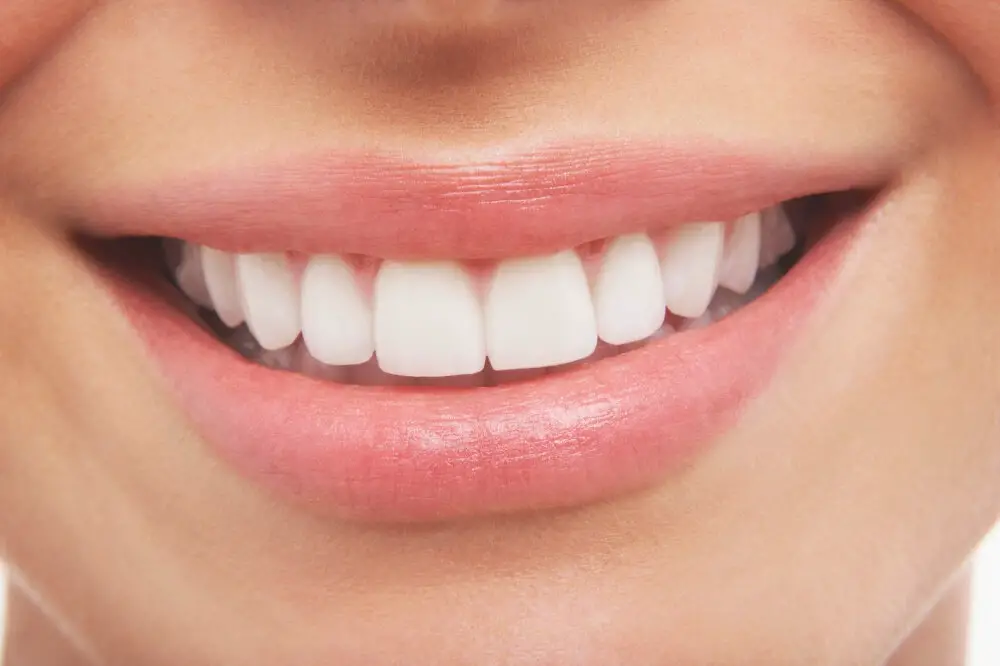
In conclusion, there are numerous natural ways to strengthen teeth and gums for optimal oral health. Incorporating a balanced diet, regular brushing and flossing, and avoiding harmful habits such as smoking and excessive alcohol consumption can help maintain healthy teeth and gums. Additionally, using natural remedies such as neem, sesame oil, and saltwater rinses can provide added benefits. It is essential to prioritize oral health and take proactive steps to prevent dental problems from developing. By following these expert tips, individuals can achieve strong and healthy teeth and gums, leading to improved overall health and wellbeing.
